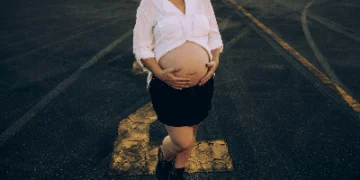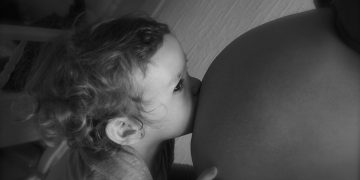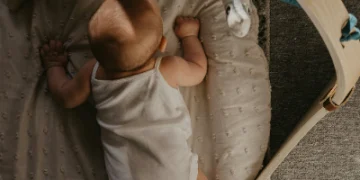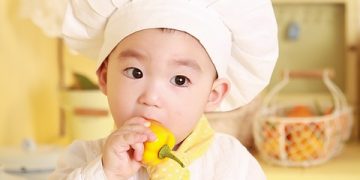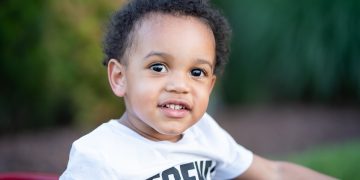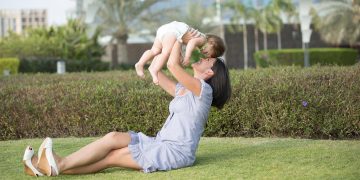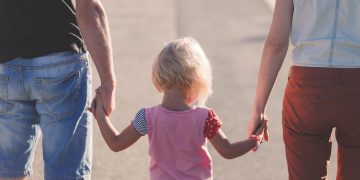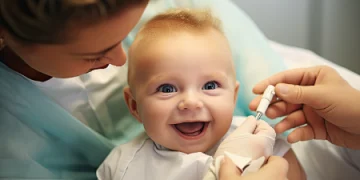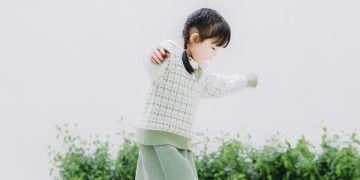Watching your little one grow and discover the world around them is one of parenting’s greatest joys. Those precious moments when they first smile, say “mama,” or take their wobbly first steps aren’t just milestones to celebrate—they’re glimpses into the incredible process of early childhood development happening right before your eyes.
The years between birth and age five represent the most remarkable period of human development. During this time, your child’s brain is working overtime, creating over one million neural connections every single second. It’s both awe-inspiring and, let’s be honest, a little overwhelming when you realize how much influence you have as their very first teacher.
But here’s the beautiful truth: you don’t need to be perfect, and you don’t need expensive programs or gadgets. What you need is understanding, patience, and some practical guidance to help nurture your child’s natural development. That’s exactly what we’ll explore together in this guide.
The Amazing Science Behind Your Child’s Growing Brain
Think of your baby’s brain as a bustling construction site where architects, builders, and electricians are working around the clock. From the moment they’re born, your child’s brain is laying the foundation for everything they’ll learn and become throughout their life.
During these early years, brain development happens at lightning speed. Your child’s experiences—every conversation, every cuddle, every new sight and sound—literally shape their neural pathways. When you respond to their cries, engage in peek-a-boo games, or read bedtime stories, you’re not just bonding; you’re actively building their brain architecture.
Developmental milestones serve as helpful guideposts along this journey. In the first year, your baby moves from reflexive responses to intentional actions. They learn to focus their eyes, reach for objects, and begin understanding that they’re separate from you. By their first birthday, most children are starting to walk and say their first words—incredible achievements that represent months of neural pathway development.
The toddler years bring explosive language development and the emergence of independence. Your two-year-old’s vocabulary might jump from 50 words to over 300 in just a few months. Meanwhile, their little brain is also developing executive function skills—the mental processes that help them focus, remember instructions, and manage their emotions.
By ages three to five, children enter what many experts call the “magic years” of development. Their imagination soars, they begin understanding complex social relationships, and they develop the school readiness skills that will serve them well in formal education.
The Four Pillars of Child Development
Understanding early childhood development becomes much easier when we think about it in four interconnected areas: cognitive, language, social-emotional, and physical development. Like the legs of a sturdy table, each area supports and strengthens the others.
Cognitive Growth: Building Little Thinkers
Cognitive development is essentially how your child learns to think, solve problems, and make sense of their world. It starts with simple cause-and-effect learning—like discovering that dropping a toy makes noise—and gradually becomes more sophisticated.
You can support cognitive growth through everyday activities. When you narrate your daily routines (“Now we’re putting on your red shirt”), play simple sorting games with blocks, or encourage your toddler to help solve problems (“How can we reach that toy?”), you’re nurturing their thinking skills.
Remember, play-based learning is incredibly powerful during these years. That “silly” game of stacking blocks and knocking them down? Your child is actually learning about physics, spatial relationships, and problem-solving.
Language: The Gateway to Communication
Language development is truly magical to witness. It begins long before your baby says their first word, starting with crying, cooing, and those adorable babbling conversations you have together.
Reading together daily is one of the most powerful gifts you can give your developing child. It doesn’t matter if they seem more interested in chewing the book than listening—they’re still absorbing language patterns, vocabulary, and the rhythm of storytelling. Even fifteen minutes of reading time each day can significantly impact their language and communication skills.
Don’t worry if your child seems to develop language at a different pace than their peers. Some children are early talkers, while others focus their energy on physical skills first. What matters most is that you continue talking, singing, and reading with them regularly.
Social-Emotional Development: The Heart of Human Connection
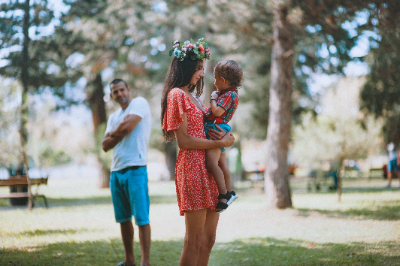
Social-emotional growth is perhaps the most complex area of development, yet it’s fundamental to your child’s future happiness and success. This domain encompasses how children understand and manage their emotions, form relationships, and navigate social situations.
Emotional regulation doesn’t come naturally—it’s a skill that develops gradually with your loving guidance. When your toddler has a meltdown because their cracker broke, they’re not being dramatic; they’re experiencing genuine overwhelm because their brain hasn’t yet developed the capacity to manage big emotions.
Your response in these moments matters tremendously. By staying calm, acknowledging their feelings (“You’re really upset that your cracker broke”), and helping them find solutions, you’re teaching crucial emotional intelligence skills that will serve them throughout life.
Building secure attachment relationships with your child creates the foundation for all their future relationships. This doesn’t mean being perfect—it means being responsive, consistent, and emotionally available most of the time.
Physical Development: Growing Strong Bodies
Physical development encompasses both large motor skills (like running and jumping) and fine motor skills (like holding a crayon or buttoning clothes). These skills develop in predictable patterns, generally moving from head to toe and from the center of the body outward.
Encourage gross motor development through active play. Dancing in the living room, playing chase in the backyard, or going for nature walks all support physical growth while creating joyful memories together.
Fine motor skills develop through activities like finger painting, playing with playdough, or helping with simple cooking tasks. These experiences strengthen the small muscles in their hands and fingers, preparing them for future writing and self-care tasks.
Creating an Environment That Nurtures Growth
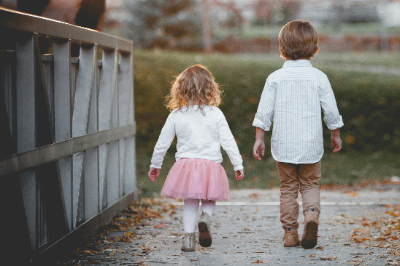
The environment you create for your child doesn’t need to look like a Pinterest-perfect playroom. What matters most is that it’s safe, stimulating, and filled with opportunities for exploration and connection.
Developmentally appropriate activities can happen anywhere with simple materials. A cardboard box becomes a fort, car, or spaceship. Pots and wooden spoons transform into a drum set. Water and cups in the bathtub become a science laboratory.
Consider your child’s developmental stage when setting up activities. Babies need safe objects to mouth and explore, toddlers benefit from materials they can dump, fill, and sort, while preschoolers enjoy more complex challenges that let them practice emerging skills.
Screen time deserves special consideration in today’s digital world. While high-quality educational content can be beneficial for older toddlers and preschoolers, nothing replaces real-world experiences and human interaction during these crucial years. The American Academy of Pediatrics recommends avoiding screens entirely for children under 18 months (except video chatting) and limiting screen time to one hour of high-quality programming for children ages 2-5.
Supporting Your Child Through Challenges
Every child develops at their own pace, and it’s completely normal for development to be uneven. Your child might be an early walker but a late talker, or vice versa. However, it’s important to know when to seek additional support.
Trust your instincts as a parent. If you notice significant delays in developmental milestones, lack of social engagement, or regression in previously acquired skills, don’t hesitate to discuss your concerns with your pediatrician. Early intervention services can make a tremendous difference when challenges are identified and addressed promptly.
Remember that seeking help doesn’t mean you’re failing as a parent—it means you’re advocating for your child’s needs. Many children benefit from additional support, and receiving services early often leads to better outcomes.
The Foundation of Health: Nutrition and Sleep
Brain development requires proper fuel, and nutrition plays a crucial role in supporting your child’s growth. Focus on offering a variety of nutritious foods while keeping mealtimes pleasant and pressure-free. Young children are naturally good at self-regulating their food intake when offered healthy options.
Don’t stress if your toddler goes through phases of picky eating—this is developmentally normal. Continue offering variety without turning meals into battles. It can take many exposures to a new food before a child will try it.
Sleep is when your child’s brain consolidates the day’s learning and experiences. Establishing consistent bedtime routines helps support both physical development and cognitive growth. Most toddlers need 11-14 hours of sleep per day, while preschoolers typically need 10-13 hours.
Building Your Support Network
Early childhood development doesn’t happen in isolation—it takes a village to raise a child, as the saying goes. Don’t hesitate to reach out for support from family, friends, and your community.
When choosing childcare or preschool programs, look for environments that understand and support developmentally appropriate practices. Quality programs focus on play-based learning, have warm and responsive caregivers, and maintain good communication with families.
Looking Toward the Future
The investment you make in early childhood development today pays dividends throughout your child’s life. Children who receive responsive care and rich early experiences are more likely to succeed in school, have better relationships, and enjoy greater life satisfaction as adults.
But remember, this isn’t about creating a super-child or checking off every developmental box perfectly. It’s about providing love, security, and rich experiences that allow your child’s natural development to unfold.
Your Journey as Your Child’s First Teacher
As we wrap up this guide, take a moment to appreciate the incredible journey you’re on with your child. Every day, you’re witnessing and supporting one of nature’s most remarkable processes—the development of a human mind and heart.
Early childhood development isn’t about perfection; it’s about connection, understanding, and providing the love and support your child needs to thrive. Trust yourself, enjoy the process, and remember that your love and attention are the most powerful tools you have for nurturing your child’s growth.
Some days will be harder than others—that’s completely normal. On challenging days, remember that your child doesn’t need you to be perfect; they need you to be present, patient, and caring. That’s more than enough to help their little mind flourish and grow into everything they’re meant to become.
The early years pass quickly, but their impact lasts a lifetime. By understanding and supporting early childhood development, you’re giving your child the greatest gift possible: a strong foundation for a lifetime of learning, loving, and growing.


